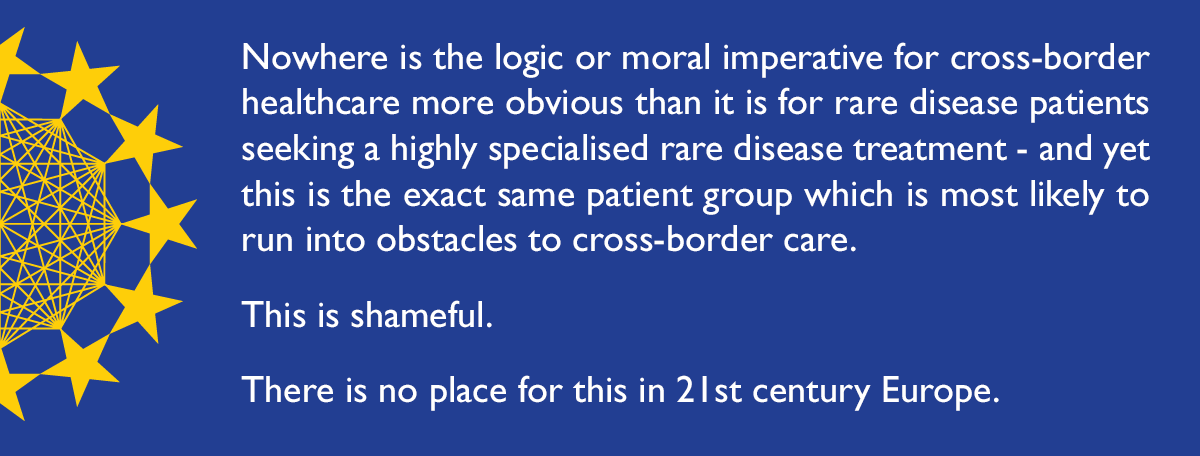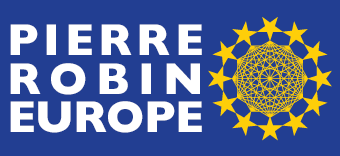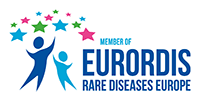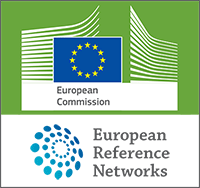Letter to EU Health Commissioner Kyriakides
On 5 December 2019 we sent a letter to EU Health Commissioner Stella Kyriakides…

Letter to EU Health Commissioner Stella Kyriakides
5 December 2019
Health Commissioner Stella Kyriakides
European Commission
Rue de la Loi
1049 Brussels
Belgium
Re: Request for Infringement Procedure, La Caisse Primaire d’Assurance Maladie
Dear Health Commissioner Stella Kyriakides,
We are writing to you regarding EU cross-border healthcare, an issue of great importance for EU citizens, the EU organization I represent, and my own family. I formally request that you launch an Infringement Procedure against La Caisse Primaire d’Assurance Maladie in France.
My name is Philippe Pakter. I am Dutch; my partner is French. We are currently involved in a continuing struggle with the French state health insurance fund, La Caisse Primaire d’Assurances Maladie (CPAM), over a violation of EU law: both primary EU law (the EU’s four fundamental freedoms), and secondary EU legislation (2011 Cross-border Healthcare Directive, and Regulation 883). The EU citizen whose rights were violated is a newborn French baby suffering from a rare disease. The baby’s name is Lysiane Pakter. Lysiane is my daughter.
Lysiane was born on 29 March 2017 in Lyon, France, with a life threatening rare disease. Within one week of her birth we the parents identified a highly specialised, medically proven, safe, non-surgical, and cost-effective rare disease treatment, offered in Germany, and not available in France or anywhere else in the EU: the “TPP” treatment. We submitted a request to La Caisse Primaire d’Assurance Maladie (CPAM) to obtain prior authorisation to access this medically proven rare disease treatment. CPAM refused to provide the authorisation. The TPP treatment is time sensitive, so in spite of the refusal, my family decided to move forward with the TPP treatment anyway. My father – Lysiane’s grandfather – took out a bank loan, using his home as security for the loan. We wired the bank loan to the German hospital, transferred Lysiane to Germany, and Lysiane received the TPP treatment, which successfully resolved her torturous breathing difficulties, and liberated her from the breathing machine. We are now appealing CPAM’s rejection and seeking to reverse it. On behalf of the organization I represent, on behalf of my own daughter Lysiane, and on behalf of all French babies like Lysiane suffering from Pierre Robin Sequence, we demand Lysiane’s S2 – her authorisation for cross-border healthcare – which CPAM refused, in violation of EU law.
We have a growing list of allies which agree that CPAM violated EU law:
- The European Commission’s SOLVIT Network. After carefully analysing our case, the European Commission’s SOLVIT Network formally concluded that CPAM, in rejecting our daughter Lysiane’s request for cross-border healthcare, violated EU law (SOLVIT Case Number 2569/17/DE). SOLVIT’s conclusion was that Lysiane qualified for authorisation for cross-border healthcare under both the 2011 Cross-border Healthcare Directive, as well as under Regulation 883.
- A senior Member of European Parliament from the 8th, 7th, 6th, 5th and 4th Parliamentary Terms, Ms. Françoise Grossetête. Ms. Grossetête has extensive experience working with the EU’s 2011 Cross-border Healthcare Directive; she was the European Parliament’s Special Rapporteur for this legislation. Ms. Grossetête knows this law, and she too knows it was violated; she sent a formal letter of support directly to France’s Minister of Health, Madame Agnès Buzyn, making it clear that this situation is “unacceptable”, and that the rejection was legally unfounded.
- EURORDIS, the largest rare disease patient organization in the EU. EURORDIS sent a highly detailed letter of support to CPAM, explaining why they too believe the rejection violated EU law. EURORDIS has pledged to accompany us, Lysiane’s parents, in court, all the way up to the Court of Justice of the European Union.
- The European Patients’ Forum, the largest patient advocacy umbrella organization in the EU. The European Patients’ Forum was a key stakeholder in the drafting of the 2011 Cross-border Healthcare Directive; they too know this law. The European Patients’ Forum sent a formal letter of support directly to the French President, Emmanuel Macron. In their letter they state that this situation is “shocking”, and that CPAM’s rejection was legally unfounded.
- Pro Rare Austria, an Austrian umbrella organization for rare disease patient advocacy groups. In their letter to CPAM they ask the Director, Nicolas Revel, to reverse CPAM’s unfounded rejection of Lysiane’s right to a safe and medically proven rare disease treatment in Germany.
- Rare Diseases Denmark, a leading rare disease advocacy group from Scandinavia, and a highly respected voice in the international rare disease movement. In their letter of support, they point out that the case of Lysiane “is a devastating example of the struggle that many rare disease patients and families have faced, and continue to face, right here in Europe.”
- The Member of Parliament representing our district in France, Mr. Bruno Bonnell, of the Assemblée Nationale (France’s Parliament). MP Bonnell is an active defender of patients’ rights and people with disabilities.
- Law professors specialising in EU cross-border healthcare and social security law, who agree that CPAM’s rejection of our daughter Lysiane’s request for cross-border healthcare was legally unfounded.
Health Commissioner Stella Kyriakides, there are many instances in which EU citizens protest violations of EU law. However, there are critical aspects about this situation which set it apart.
1. This situation raises an issue of wider principle which matters to all EU citizens, and which affects their daily lives: if a newborn baby suffering from a rare disease, immobilized in an intensive care unit and connected to a breathing machine, doesn’t have the right to obtain a highly specialised, medically proven, safe, and cost-effective treatment for her rare disease in another EU Member State – then who DOES have the right to cross-border care?
If our daughter Lysiane’s clear and obvious right to access EU cross-border healthcare can be violated, then ANY EU citizen’s right to access cross-border healthcare can be violated. This turns the EU’s 2011 Cross-border Healthcare Directive and Regulation 883 into a cruel deception and a cynical façade.
2. This situation is not an individual case. This situation involves an entire class of French babies who were born with, and who in the future will be born with, this rare disease – an entire class of highly vulnerable EU citizens who are not able to speak for themselves.
The basis of CPAM’s rejection of Germany’s TPP treatment is CPAM’s claim that the treatment offered in France is “the same or equally effective” as the highly specialised, medically proven, safe, non-surgical, and cost-effective TPP treatment, which multidisciplinary German medical teams developed specifically for this rare disease. The European Union’s SOLVIT Network formally concluded that CPAM’s rejection violated EU law, both the 2011 Directive, and Regulation 883; numerous highly reputable organisations and Members of European Parliament and EU law professors agree. The important point though is that this rejection is not a “personal case”; the basis of the rejection, that France’s treatment is the “the same or equally effective”, affects an entire class of French babies living with this rare disease, and who in the future will be born with this rare disease.
The TPP treatment in Germany is not a new, uncertain, unsafe, experimental treatment. The TPP’s effectiveness and safety have been definitively proven in numerous internationally peer-reviewed medical studies. Babies from other EU Member States have been transferred to Germany to receive the TPP treatment, including babies from lower income Eastern European Member States. Babies from Russia have been transferred to Germany to receive the TPP treatment. Even babies from as far away as the west coast of the United States of America have been transferred, over enormous distances, to Tübingen Germany, to receive the TPP treatment. Next year an international medical conference will be held, which will bring together Pierre Robin Sequence experts from all over the entire world. The panel of international physicians who organise this conference chose the Tübingen University Hospital, which invented and administers the TPP treatment, to host the event. This is not about encouraging French families to choose this safe and medically proven German treatment for their baby; this is simply about permitting them to make that choice, according to EU law – guaranteeing EU citizens, especially rare disease patients, the right to access cross-border healthcare.
It will take 8 to 10 years for this case to reach the Court of Justice of the European Union. During this period, an entire class of rare disease patients, French babies born with Pierre Robin Sequence, will have the following treatment options in France: connecting the baby for months on end to a hospital breathing machine, which radically limits the baby’s mobility, and quality of life; and surgical procedures, including labioglossopexy. Labioglossopexy is a treatment which was first proposed a century ago. EURORDIS described it in their letter to CPAM as “barbare“. It is when you sew the baby’s tongue to the baby’s lower lip.
3. This situation points to a known, serious, EU-wide problem: unjustified Member State obstruction to EU cross-border healthcare, in violation of both primary EU law, and secondary EU legislation.
The free movement of people, services, goods and capital forms the basis for the entire EU project. As German Minister Peter Altmaier explained, “These four fundamental freedoms are at the heart of the single market… That means that any country that would like to participate in the single market, basically has to accept the single market as it exists.” As French President Emmanuel Macron explained to the European Parliament last year, in the context of Brexit, any country wishing to remain in the EU must accept all four of the four fundamental freedoms: “Il n’y a pas de cherry-picking dans le marché unique. C’est un principe simple… les libertés en Europe sont solidaires et l’accès plein et entier suppose la reconnaissance de toutes ces libertés” (“There is no cherry picking in the common market. It is a simple rule… Europe’s freedoms are indivisible, and full and complete access requires the recognition of all of these freedoms”). The free movement of services includes the free movement of healthcare services. From the 2011 Directive: “As confirmed by the Court of Justice, neither its special nature nor the way in which it is organised or financed removes healthcare from the ambit of the fundamental principle of the freedom to provide services.” EU citizens enjoy a fundamental legal right to receive services, including healthcare services, in other EU Member States, without facing unjustified restrictions, obstacles, obstruction, or delay.
Unfortunately, the European Parliament’s Implementation Report on the 2011 Directive (Report A8-0046/2019), confirms that EU Member States are continuing to engage in resistance, non-cooperation and outright obstruction, in order to prevent EU citizens from accessing cross-border healthcare services in Europe. The Parliamentary Committee observes that “…in a considerable number of Member States, the obstacles that patients encounter when dealing with health systems remains significant… certain prior authorisation systems appear to be unduly burdensome and/or restrictive…” The Parliamentary Committee “Notes with concern that in some Member States insurance companies have discriminated arbitrarily or created unjustified obstacles to the free movement of patients and services…” and “…expresses disappointment that a significant number of Member States have not effectively implemented the requirements for guaranteeing patients’ rights; urges Member States therefore to ensure its proper implementation… while respecting the principle of the free movement of persons within the internal market…” Quoting from the text of the 2011 Directive, which itself draws upon decades of legally binding EU Court of Justice decisions, the Parliamentary Committee reminds Member States that “…any limitation on the application of the directive, such as prior authorisation requirements or limitations on reimbursement, should be necessary and proportionate and not give rise to arbitrary or social discrimination, must not put up unjustified obstacles to the free movement of patients and services…”
Last year the European Commission provided the European Parliament with an official report on the 2011 Directive: “Report from the Commission to the European Parliament and the Council on the operation of Directive 2011/24/EU” (COM(2018) 651 final). The European Commission’s report notes that the total cost of cross-border healthcare under Regulation 883 amounts to approximately 0.1% of the EU-wide annual healthcare budget – one tenth of one percent – an exceedingly small figure. But the European Commission’s report goes on to say that under the 2011 Directive, which was supposed to finally facilitate cross-border healthcare for EU citizens, the figure is radically lower. The total cost of all cross-border healthcare incurred under the 2011 Directive for planned care, unplanned care, routine treatments, rare disease treatments, everything, all together, amounts to approximately 0.004% of the EU-wide annual healthcare budget – four thousandths of one percent – and according to the European Commission, these figures have remained stable over the years. Member States likely spend more per year on bedpans and bandages than they do on the full sum total of all cross-border healthcare across the entire continent of Europe.
The EU’s European Court of Auditors just released their own report on the 2011 Cross Border Healthcare Directive: “EU actions for cross-border healthcare” (ECA Special Report 7/2019). How many EU citizens have been able to successfully obtain prior authorisation under the 2011 Directive? The European Court of Auditors reports that among all EU citizens seeking prior authorisation for planned cross-border healthcare under the 2011 Directive – EU citizens seeking a treatment involving an overnight stay in a hospital, or specialised medical equipment – prior authorisation was only granted to 3,562 EU citizens, over an entire one year period. For perspective: the EU has approximately 500 million citizens. 3,562 patients amount to 0.0007124% of EU citizens, less than 1/1,000th of 1%, an almost inconceivably small figure.
The European Reference Network (ERN) system promised Europe’s rare disease patients that they could benefit from virtual cross-border healthcare; they would be able to use the ERN’s state of the art “digital health” computer system, the Clinical Patient Management System (CPMS). The CPMS would permit physicians in different Member States to simultaneously review and discuss one rare disease patient’s file. However, all of the ERNs combined – at this time there are 24 of them – only open approximately 300 patient files a year. For perspective: EURORDIS estimates that there are approximately 30 million men, women, children and babies suffering from a rare disease in the EU today. 300 patients amount to 0.001% of the EU’s rare disease patient community, approximately 1/1,000th of 1%, another almost inconceivably small figure. After their exhaustive review of the 2011 Directive, the European Court of Auditors solemnly concluded that “the benefits for patients were limited”. Our own struggle to access cross-border healthcare for our daughter Lysiane demonstrates one of the problems; many EU citizens seeking cross-border healthcare, facing resistance, unjustified obstacles, and outright obstruction, simply lose hope and give up. If the 2011 Cross-border Healthcare Directive dies completely, part of the autopsy will read: Member State obstruction.
The most recent official reports on the 2011 Cross-border Healthcare Directive from the European Commission, from the European Parliament, and from the European Court of Auditors, together indicate that the law is being used very, very little, and that when EU citizens do try to use it, Member States are continuing to raise unjustified obstacles to prevent the patients from achieving their goals. One example of this is the abuse by Member States of the prior authorisation procedure. According to the European Patients’ Forum, the “prior authorisation seems to be by far the normal practice for rare disease patients, perhaps because in most cases the care required falls under the prior authorisation requirements.” Since rare disease patients are far more likely to require prior authorisation than patients seeking cross-border healthcare for more common conditions, obstacles placed in the way of prior authorisation have a disproportionate impact on EU citizens who are already struggling with a rare disease. This is way out of step with the 2030 Agenda for Sustainable Development; the UN High Commissioner for Human Rights reminds us that the 2030 Agenda’s commitments “to leave no one behind and to reach first those who are furthest behind are founded on the human rights principles of equality and non-discrimination, and of prioritizing the vulnerable and marginalized in society”. Rare disease patients should be prioritized – not burdened further.
Thus we are faced with a cruel irony: nowhere is the logic or moral imperative for planned cross-border healthcare more obvious than it is for EU rare disease patients seeking a highly specialised treatment not available in their own Member State – and yet this is the exact same patient group which is most likely to run into obstacles to cross-border care. Based on the principle that the true measure of any society can be found in how it treats its most vulnerable members, the disproportionate harm which this ongoing illegal Member State obstruction inflicts on EU rare disease patients is absolutely shameful. There is no place for this in 21st century Europe.
Action Required on the EU Level
Member States are responsible for managing their own healthcare systems. However, each Member State, in managing its healthcare system, must manage it in conformity with EU law. A Member State’s healthcare system cannot violate EU law, and in particular, it cannot violate the EU’s four fundamental freedoms. This is well settled law, confirmed repeatedly by the Court of Justice of the European Union, and confirmed again in the 2011 Cross-border Healthcare Directive itself. Unfortunately, Member States continue raising unjustified obstacles to cross-border healthcare, and they show no willingness to reform themselves. The obstacles continue, in spite of decades of jurisprudence from the Court of Justice of the European Union dating all the way back to Decker and Kohll, in spite of the four fundamental freedoms, in spite of Regulation 883, and in spite of the 2011 Directive itself – and the 2011 Directive was supposed to finally put these problems to rest. When EU law is violated in this way, the enormous resources dedicated to producing the legislation is wasted, and the legitimacy and sustainability of the European Union suffers. Actual living people suffer too – in this case, EU citizens who are already facing enormous challenges in health and in life, including people, and even babies, suffering from life threatening rare diseases. Action on the EU level is desperately required.
Conclusion
As the European Commission declared in its official statement, 2017/C 18/02, it is the European Commission’s job to enforce EU law: “The European Union is founded on the rule of law and relies on law to ensure that its policies and priorities are realised in the Member States. The effective application, implementation and enforcement of the law is a responsibility entrusted to the Commission by Article 17(1) of the Treaty on European Union.” EU Health Commissioner Vytenis Andriukaitis made a promise to the European Parliament on 12 February 2019: “I would like to stress once again that the Commission will take deliberate action when the spirit and letter of the Directive is not upheld.” Attached please find the letter my family and I sent to French President Emmanuel Macron over a year and a half ago. It contains background information, a medical analysis, a legal analysis, and a conclusion. On the basis of the facts contained in our letter to President Macron, and the additional information provided above, I formally request, Health Commissioner Stella Kyriakides, that you launch an Infringement Procedure against CPAM. Thank you.
Kind regards,
Philippe Pakter
Chairman and attorney, Stichting Pierre Robin Europe (Pierre Robin Europe Foundation)
Member, EURORDIS, The European Organisation for Rare Diseases
Member, VSOP, Vereniging Samenwerkende Ouder-en Patiëntenorganisaties
European Reference Network (ERN) Patient Advocacy Group Representative
We the undersigned, Members of European Parliament, leaders of patient organizations and rare disease patient advocacy groups, Professors of European Law, experts in international healthcare policy, rare disease patients, their family members, and concerned citizens in Europe and abroad, hereby support this initiative, and ask you EU Health Commissioner Stella Kyriakides to please take immediate action now.
- Françoise Grossetête, former Member of European Parliament and Special Rapporteur for the 2011 Cross-border Healthcare Directive
- John Bowis, former Member of European Parliament and Special Rapporteur for the 2011 Cross-border Healthcare Directive
- Member of European Parliament Petra De Sutter, MD, PhD; Chair, European Parliament Committee on the Internal Market and Consumer Protection; Physician
- Member of European Parliament Tilly Metz, Member, European Parliament Committee on the Environment and Public Health
- Member of European Parliament Olivier Chastel, Vice-Chair, European Parliament Committee on Budgets
- Member of European Parliament Evelyne Gebhardt, Member, European Parliament Committee on the Internal Market and Consumer Protection
- Yann Le Cam, CEO, EURORDIS, the European Organisation for Rare Diseases
- Usman Khan, PhD, Executive Director, EPF, the European Patients’ Forum
- Professor Andre den Exter, Jean Monnet Chair of European Union Health Law, Erasmus University, Rotterdam
- Professor Francis Kessler, Social Security Law, Comparative Law and European Social Law, Sorbonne Université Paris 1, Paris
- Professor Dominic Wilkinson, Medical Ethics, Oxford University, Oxford, and Physician specialising in newborn intensive care; Editor, The Journal of Medical Ethics
- Professor Frans Pennings, Labour Law and Social Security Law, University of Utrecht, Utrecht
- Professor Victor G. Rodwin, Health Policy and Management, New York University, New York City
- Cor Oosterwijk, PhD, Director, VSOP (Vereniging Samenwerkende Ouder en Patiëntenorganisaties), The Dutch Patient Alliance for Rare and Genetic Diseases
- Durhane Wong-Rieger, PhD, President & CEO, CORD, the Canadian Organization for Rare Disorders
- Justina Januševičienė, PhD of Public Law, Head of Health Care Innovation Development Center at Lithuanian University of Health Sciences
- Nick Sireau, PhD, Chairman and CEO, AKU Society
- Willy Palm, Senior Adviser, European Observatory on Health Systems and Policies; author, “Everything you always wanted to know about European Union health policies but were afraid to ask”.
- Ing. Mgr. Pavla Mašková, PhD, Česká asociace pro vzácná onemocnění, The Czech Association for Patients with Rare Diseases
- Dominique Sturz, Secretary, Pro Rare Austria
- Jasmin Barman-Aksözen, PhD, Vice-president, International Porphyria Patient Network (IPPN)
- Yvonne Milne, Founder, Rett UK, Board Member, Rett Syndrome Europe, European Reference Network (ERN) Patient Advocacy Group Representative, MBE for services to health
- Heather C. Etchevers, PhD; Research Scientist, INSERM
- Lene Jensen, CEO, Rare Diseases Denmark; former member of EUCERD; former member of Danish Parliament
- Holm Graessner, PhD, MBA, FEAN; Coordinator, European Reference Network for Rare Neurological Diseases; Managing Director, Centre for Rare Diseases Tübingen
- Lieven Bauwens, rare disease patient advocate (Spina Bifida and Hydrocephalus); advocate for the rights of persons with disabilities
- Irena Žnidar, PhD, Director, International Gaucher Alliance (IGA)
- Alastair Kent, Policy Expert on rare and genetic diseases; OBE for services to healthcare; Fellow of the Royal Society of Arts; EURORDIS Lifetime Achievement Award
- Professor Scott L. Greer, Health Management and Policy, Global Public Health, and Political Science, the University of Michigan, Ann Arbor; Senior Expert Advisor on Health Governance for the European Observatory on Health Systems and Policies; author, “Everything you always wanted to know about European Union health policies but were afraid to ask”
- Professor Olivier De Schutter, International Human Rights law, European Union law, and legal theory, the University of Louvain, Louvain-la-Neuve, as well as at Sciences Po in Paris; Member, the UN Committee on Economic, Social and Cultural Rights; author, “Infringement Proceedings as a Tool for the Enforcement of Fundamental Rights in the European Union”











